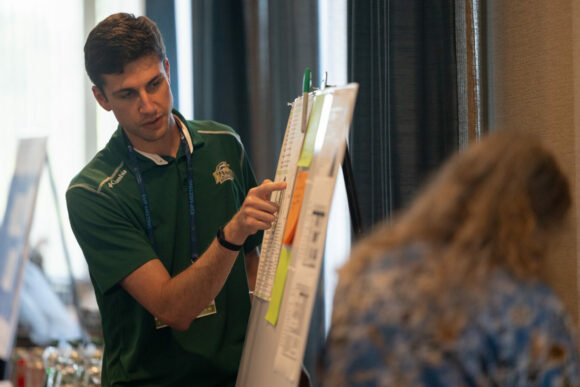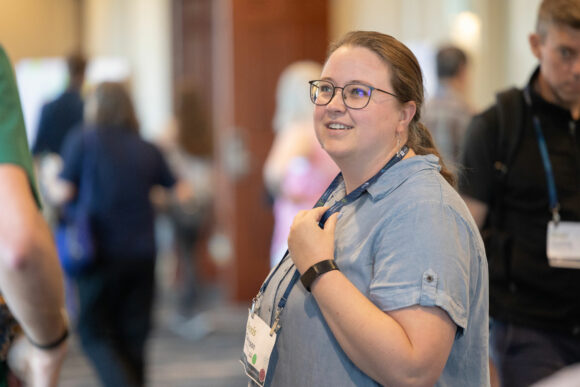Catch a recap of the January ESIP Meeting in the Meeting Highlights Webinar – February 23! Learn more.
We value students and early career researchers.
For those pursuing or have recently completed graduate studies, ESIP offers several forms of support:
- ESIP hosts two meetings each year with a reduced registration rate for students
- At the July ESIP Meeting, we hold a mini-grant competition, FUNding Friday, and award two graduate student teams $3,000 each to support small projects inspired by ESIP collaboration or participation
- Each fall we accept a new class of ESIP Community Fellows
- In the spring, ESIP awards the Raskin Scholarship to a graduate or post-graduate student in the Earth or computer sciences who has an interest in community evolution of Earth science data systems.
Additionally, we host a #job-opportunities channel in the ESIP Slack and share events, funding opportunities, and job postings in the ESIP Update.
ESIP Community Fellows
Applications are now closed for the 2026 cohort.
ESIP Community Fellows are graduate students interested in bridging the gap between informatics and Earth science. This fellowship provides early career researchers a chance to work closely with professionals in an interdisciplinary, cross-sector group by working with one of the ESIP Collaboration Areas.
Community Fellows become engaged in ESIP Collaboration Areas as rapporteurs, documenting group activities on monthly calls and at ESIP’s two meetings. As fellows become more familiar with Collaboration Area activities, they may choose to integrate their own research, which can result in publication and additional funding opportunities.

Raskin Scholarship
The scholarship is awarded annually to an individual in the Earth or computer sciences who has an interest in community evolution of Earth science data systems. The Raskin Scholarship seeks to promote collaboration, research support, and exposure for talented students in the Earth or computer sciences.
Special attention will be given to applicants demonstrating an interest in semantics, GIS, cyberinfrastructure and computing in the geosciences. The Scholarship provides a $5,000 award and support to attend the July ESIP Meeting where the Raskin Scholar presents an invited talk covering their field of interest.




